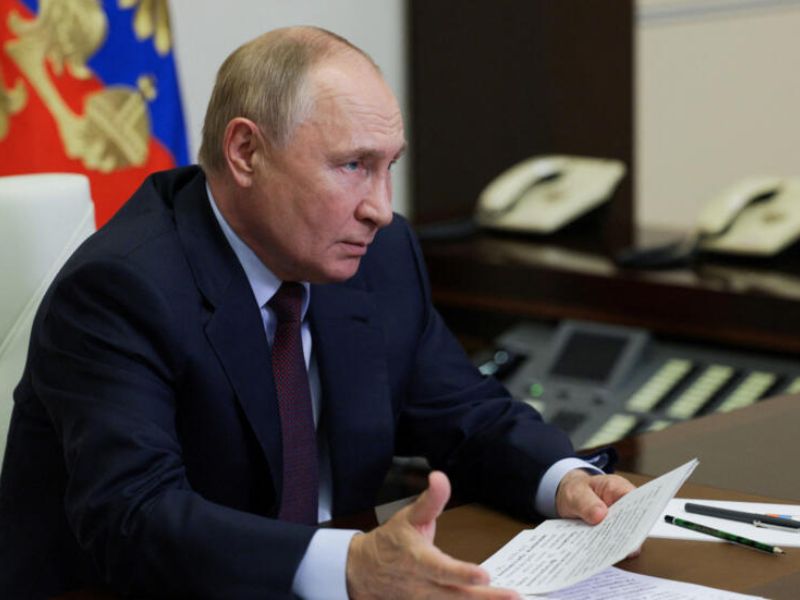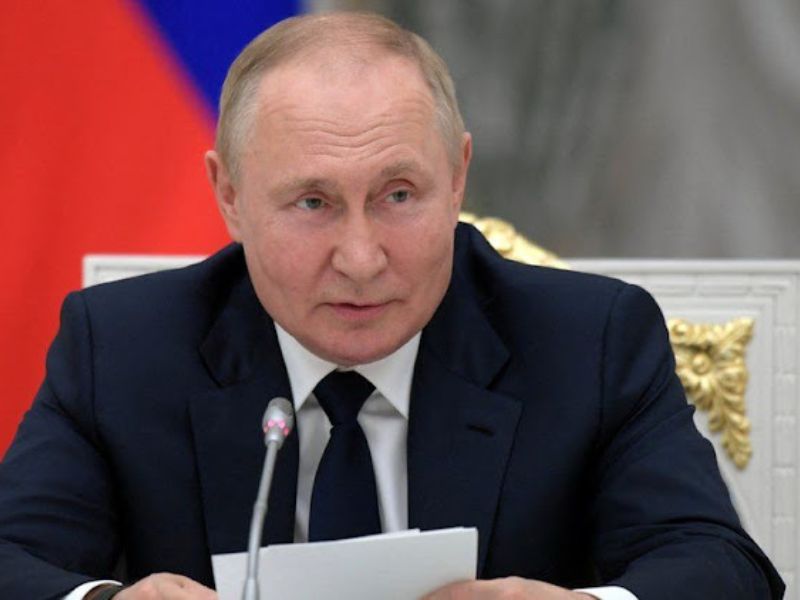The Universal Criminal Court (ICC) has issued a noteworthy articulation that might change universal conciliatory elements. Agreeing with the ICC, Mongolian authorities have a lawful commitment to capture Russian President Vladimir Putin if he visits the nation the following week. This articulation underscores the pressure encompassing Putin’s planned visit to Mongolia and highlights the ICC’s part in implementing universal equity.
Putin’s arranged trip to Mongolia, set for Tuesday, marks the first time the Russian pioneer would enter an ICC part state since the court issued a capture warrant against him in Walk 2023. The ICC’s warrant blames Putin for war violations, especially centering on the illegal extradition of children from Ukraine to Russia since the onset of the struggle in February 2022. This warrant has brought noteworthy examination to Putin’s universal developments and raised questions approximately the duties of ICC part states.

Dr. Fadi el-Abdallah, a representative for the ICC, emphasized the court’s dependence on its part states to uphold its choices. Concurring to Dr. Abdallah, Mongolia, like other ICC signatories, is committed to coordinating with the court’s orders, counting capture warrants issued by the ICC. “Mongolia, as a part of the ICC, commits to execute the court’s choices,” Dr. Abdallah expressed. This underscores the ICC’s reliance on its part nations to maintain worldwide equity and human rights benchmarks.
The charges against Putin are grave. The ICC denounces him of coming up short of anticipating the unlawful extradition of Ukrainian children, a charge that shapes the core of the court’s case against him. The extraditions are a portion of a broader set of allegations related to Russia’s attack on Ukraine, which has drawn far-reaching worldwide condemnation. The ICC has moreover issued a warrant for Maria Lvova-Belova, Russia’s commissioner for children’s rights, on comparable charges.
Despite the ICC’s clear order, the Kremlin has made light of the potential suggestions of the visit. Dmitry Peskov, a representative for the Russian government, communicated certainty within the planning of Putin’s visit to Mongolia. “We have a great affinity with our accomplices from Mongolia,” Peskov said. He encouraged expelled concerns about the ICC warrant, recommending that Russia has “no stresses” concerning the visit. This position reflects Moscow’s progressing dissent from the ICC’s allegations and its broader rejection of universal lawful systems.

The circumstance mirrors past discretionary pressures related to ICC warrants. Final year, Putin canceled an arranged visit to a summit in South Africa after the ICC issued its capture warrant. South Africa, another ICC part, confronted a fragile political adjusting act. President Cyril Ramaphosa recognized the potential struggle of capturing Putin, cautioning that such a move might be seen as an announcement of war by Russia. The possible cancellation of the visit was surrounded as a common choice, highlighting the complexities confronted by ICC part states in upholding capture warrants.
Also Read: Harris Criticized for Inflating Prosecutorial Record in 2003 DA Campaign
Ukraine’s outside service has been vocal about its desire for Mongolia. Ukrainian authorities have encouraged Mongolian specialists to recognize Putin’s status as a war criminal and to act in agreement with ICC mandates. The Ukrainian government has called for Putin’s capture and exchange to The Hague, where the ICC is headquartered, to confront equity for the affirmed war wrongdoings.
The ICC’s failure to execute capture autonomously places an overwhelming burden on its part states to uphold their choices. This energy has been a repeating challenge for the court because it depends on the participation of nations to maintain worldwide equity. The potential non-compliance by Mongolia may lead to encouraging investigation from the ICC and its Gathering of States Parties, which might consider measures to address occurrences of “non-cooperation.”
As the planned visit approaches, all eyes will be on Mongolia to see how it navigates this complex circumstance. The choice to capture or not capture Putin will have significant suggestions for worldwide law, the ICC’s validity, and Mongolia’s political relations with both Russia and other ICC part states.
In conclusion, the ICC’s order to Mongolia speaks to a basic test of worldwide legitimate commitments and discretionary relations. The result of this circumstance will not as it were affect Putin’s travel plans but also serve as an indicator for the viability and specialist of the ICC in implementing its commands. As the worldwide community observes closely, the activities of Mongolian authorities will likely resound far away past their borders, reflecting the continuous battle for responsibility and equity within the worldwide field.

